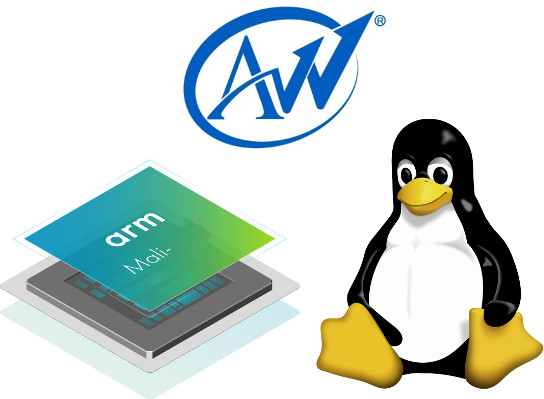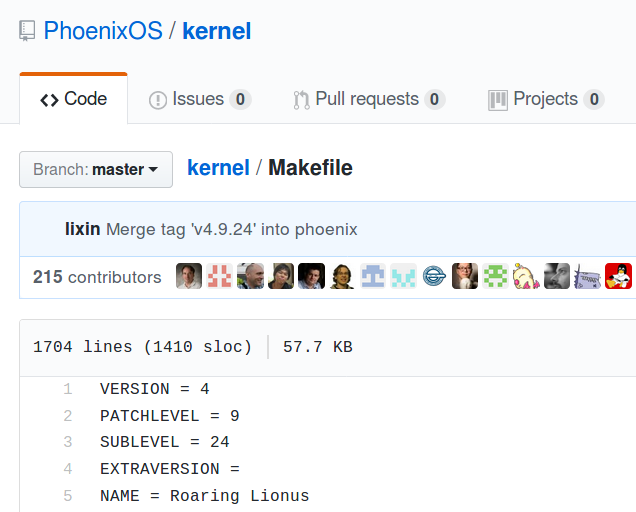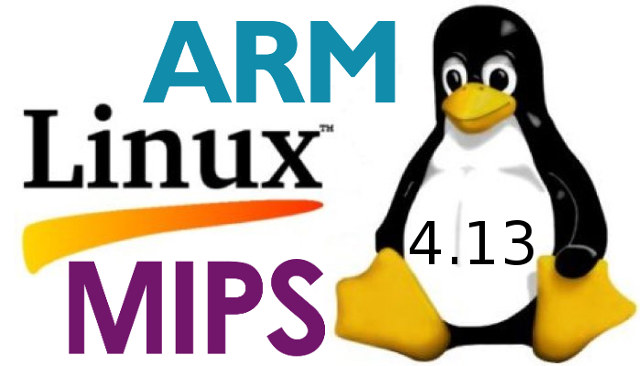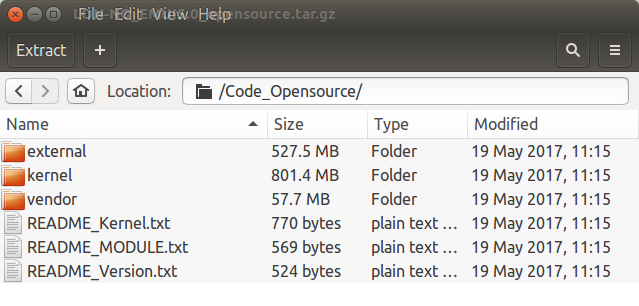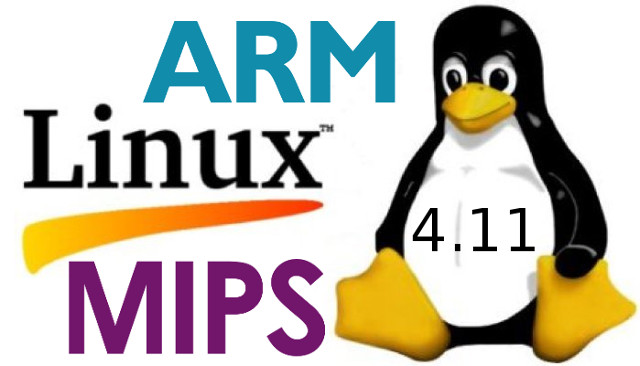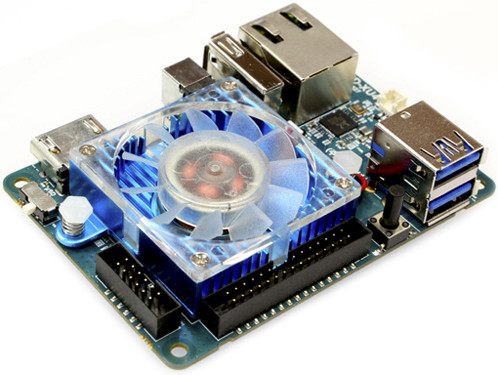OpenGL ES support in Linux for ARM SoC is usually pretty hard to get because of closed source binary blobs coupled with the manufacturers focus on Android. Workarounds include open driver projects such as Freedreno for Qualcomm Adreno GPU, Nouveau for Tegra, or Etnaviv for Vivante GPUs, as well as libhybris library that converts Linux calls into Android calls in order to leverage existing Android GPU binary blobs. Allwinner processors relies on either PoverVR or ARM Mali GPU, and the former does not have any open source project, while some work is still being going for the latter with Lima project, but it’s not ready yet. That means so far, you’re only option was to use libhybris for either GPU family. The good news is that Free Electrons engineers have been working on OpenGL ES support for ARM Mali GPU for Allwinner processor, and have been allowed to release the […]
Linux 4.9 Kernel Source Code Released for Phoenix OS Android Desktop Operating System
Phoenix OS is one of the last options left for people wanting to run Android with desktop optimizations on their computer. The problem is that so far, it was fully closed source, and the company refused to comply with the Linux kernel’s GPLv2 license, despite part of the project being based on Android-x86 work. The community also wanted to get involved to improve hardware compatibility with graphics cards, wireless modules / dongles, and other peripherals. However, without source code, nothing could be done, and a petition was launched on Change.org asking Chaozhuo, the company behind the project, to release the Linux kernel code. After over 300 signatures was reached in the petition, the company did push Linux 4.9.24 to Github, and after verifying there was indeed some changes compared to Android x86 kernel, the community declared victory. They are however trying to make the company develop the kernel in the […]
Linux 4.13 Release – Main Changes, ARM & MIPS Architectures
Linus Torvalds has just announced the release of Linux 4.13 and a kidney stone…: So last week was actually somewhat eventful, but not enough to push me to delay 4.13. Most of the changes since rc7 are actually networking fixes, the bulk of them to various drivers. With apologies to the authors of said patches, they don’t look all that interesting (which is definitely exactly what you want just before a release). Details in the appended shortlog. Note that the shortlog below is obviously only since rc7 – the _full_4.13 log is much too big to post and nobody sane would read it. So if you’re interested in all the rest of it, get the git tree and limit the logs to the files you are interested in if you crave details. No, the excitement was largely in the mmu notification layer, where we had a fairly last-minute regression and […]
Linux 4.12 Release – Main Changes, ARM & MIPS Architectures
Linus Torvalds has just released Linux 4.12: Things were quite calm this week, so I really didn’t have any real reason to delay the 4.12 release. As mentioned over the various rc announcements, 4.12 is one of the bigger releases historically, and I think only 4.9 ends up having had more commits. And 4.9 was big at least partly because Greg announced it was an LTS kernel. But 4.12 is just plain big. There’s also nothing particularly odd going on in the tree – it’s all just normal development, just more of it that usual. The shortlog below is obviously just the minor changes since rc7 – the whole 4.12 shortlog is much too large to post. In the diff department, 4.12 is also very big, although the reason there isn’t just that there’s a lot of development, we have the added bulk of a lot of new header files […]
Open Source Code Released for Hisilicon Kirin 960 Based Huawei Mate 9 and Huawei P10 Smartphones
Manufacturers of products using open source software are normally required to release the source code with their modifications to follow licenses such as the GPL, but not all comply with the license. Huawei has now released the source code with Linux and other open source libraries and programs for their Huawei Mate 9 / Mate 9 Pro and Huawei P10 / P10 Plus models powered by Hisilicon Kirin 960 processor. With the release of Hikey 960 development board most of the source code for Kirin 960 should already be available, but it’s possible some drivers/modules specific to Huawei phones may be found instead of in the Huawei release. You’ll find the download in Huawei’s open source page for: Huawei Mate 9 (MHA) / Mate 9 Pro (LON) – Link to downloads Huawei P10 (Victoria) / P10 Plus (Vicky) – Link to downloads I picked up the LON-NG_EMUI5.0_opensource.tar.gz tarball for Mate […]
Linux 4.11 Release – Main Changes, ARM & MIPS Architecture
Linus Torvalds has just released Linux 4.11: So after that extra week with an rc8, things were pretty calm, and I’m much happier releasing a final 4.11 now. We still had various smaller fixes the last week, but nothing that made me go “hmm..”. Shortlog appended for people who want to peruse the details, but it’s a mix all over, with about half being drivers (networking dominates, but some sound fixlets too), with the rest being some arch updates, generic networking, and filesystem (nfs[d]) fixes. But it’s all really small, which is what I like to see the last week of the release cycle. And with this, the merge window is obviously open. I already have two pull request for 4.12 in my inbox, I expect that overnight I’ll get a lot more. Linux 4.10 added Virtual GPU support, perf c2c’ tool, improved writeback management, a faster initial WiFi connection […]
ODROID-XU4 Development Board Price Drops to $59, Now Supports Linux 4.9 LTS
ODROID-XU4 development board powered by Samsung Exynos 5422 octa-core processor launched in summer 2015, but even after two years, it’s one of the fastest, if not the fastest, low cost development board on the market. It is also equipped with Gigabit Ethernet and USB 3.0 ports, but so far at $74, it was quite much expensive than slower peers. Hardkernel has now decided to lower the price to $59 plus shipping, which is really a good deal in terms of price/performance, and you’ll also benefit from close to two years development, as the board now supports Linux 4.9 with updates promised until early 2019. Here’s a reminder of the technical specifications: SoC – Samsung Exynos 5422 quad core ARM Cortex-A15 @ 2.0GHz + quad core ARM Cortex-A7 @ 1.4GHz with Mali-T628 MP6 GPU supporting OpenGL ES 3.0 / 2.0 / 1.1 and OpenCL 1.1 Full profile System Memory – 2GB […]
FOSDEM 2017 Open Source Meeting Schedule
FOSDEM (Free and Open Source Software Developers’ European Meeting) is a 2-day free event for software developers to meet, share ideas and collaborate that happens on the first week-end of February, meaning it will take place on February 4 & 5, 2017 this year. FOSDEM 2017 will features 608 speakers, 653 events, and 54 tracks, with 6 main tracks namely: Architectures, Building, Cloud, Documentation, Miscellaneous, and Security & Encryption. I won’t be there, but it’s always interesting to look at the schedule, and I made my own virtual schedule focusing especially on talks from “Embedded, mobile and automotive” and “Internet of Things” devrooms. Saturday 4, 2017 11:00 – 11:25 – Does your coffee machine speaks Bocce; Teach your IoT thing to speak Modbus and it will not stop talking, by Yaacov Zamir There are many IoT dashboards out on the web, most will require network connection to a server far […]


